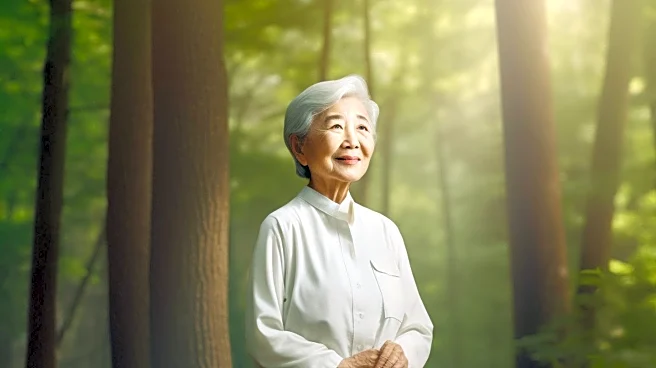What is the story about?
What's Happening?
Linda Murphy, a Massachusetts resident, passed away at the age of 60 after a three-year battle with Bulbar ALS. Prior to her death, she penned her own obituary, which has gained attention for its humor and heartfelt nature. In her obituary, Murphy reflected on her life, expressing gratitude for her family and friends, and shared her struggles with ALS, a condition that eventually left her unable to speak. Despite her challenges, Murphy maintained a positive outlook, encouraging kindness and positivity in her final message. She also made arrangements for her funeral, including a dance party to celebrate her life.
Why It's Important?
Murphy's story highlights the personal impact of ALS, a progressive neurodegenerative disease that affects nerve cells in the brain and spinal cord. Her decision to write her own obituary and share her experiences publicly brings attention to the emotional and physical challenges faced by those with ALS. Additionally, her call for kindness and positivity resonates with broader societal values, encouraging people to treat others with compassion. Murphy's choice to donate her brain and spinal cord for ALS research underscores the importance of scientific efforts to understand and combat this debilitating disease.
What's Next?
Murphy's obituary has sparked conversations about the importance of end-of-life planning and the power of personal narratives in shaping public perceptions of illness. Her story may inspire others to consider how they wish to be remembered and to engage in discussions about ALS and other neurodegenerative diseases. The attention her obituary has received could also lead to increased awareness and support for ALS research and advocacy efforts.
Beyond the Headlines
Murphy's approach to her obituary and funeral planning reflects a broader cultural shift towards personalized and celebratory end-of-life rituals. Her emphasis on kindness and positivity challenges societal norms around death and dying, offering a perspective that values joy and connection even in the face of adversity. This narrative may influence how individuals and families approach conversations about mortality and legacy.

















